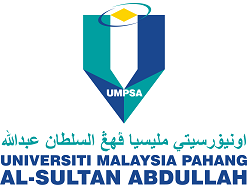A study on the Potential of Cost and Energy - A Survey At playford building, University of South Australia
DOI:
https://doi.org/10.15282/jmes.1.2011.3.0003%20%20Keywords:
Cost; survey; energy savings; energy wastage; electrical appliances.Abstract
This report summarizes a study on energy consumption of a building, and offers recommendations to reduce the cost of energy usage. Playford building, of the University of South Australia, has been chosen as the study example for completing this survey. The study uses three phases of workflow: an audit of historical energy consumption data, a screening survey, and a detailed investigation and analysis of the building itself. One year of past data have been retrieved and analyzed. Causes of energy wastage and areas with potential for energy savings have been identified by walk-through survey across two levels of the building, chosen to represent the entire building. Possible ways of reducing energy consumption have been recommended. An estimation of the energy savings, following implementation of the recommendations, has been calculated including costs that would be incurred. It was found that for six recommendations, an estimated 20.4% of energy could be saved relative to present consumption. An amount of $AUD 11264.5 per annum could be saved by the university on utility bills for electrical appliances based on an average price of electricity of 0.114592 c/kWh.
References
Australian Government Publishing Service. (1994). The Energy Audit.
Australian/New Zealand Standard (AS/NZS). (2008). Interior and Workplace Lighting, 1680.2.1.
Elliott, R. (2008). Traditional fluorescent tube lamps & their alternatives. Retrieved from http://sound.westhost.com/lamps/fluorescent.html>
Engineering Systems (India) Pvt Ltd. (2009). Power Savings and ROI by use of LED Lighting technology for Cove lighting applications compared to conventional T5 tube lights.
Martin, S. O., Lewis, A., Bruno, F., Saman, W., Marshall, A., & Jones, T. (2009a). Reduction of greenhouse emissions from the University of South Australia – Learning to Educate with Less.
Martin, S.O. Lewis, T., & Bruno, F. (2009b). University of South Australia Energy Audit.
Downloads
Published
Issue
Section
License
Copyright (c) 2011 The Author(s)

This work is licensed under a Creative Commons Attribution 4.0 International License.





